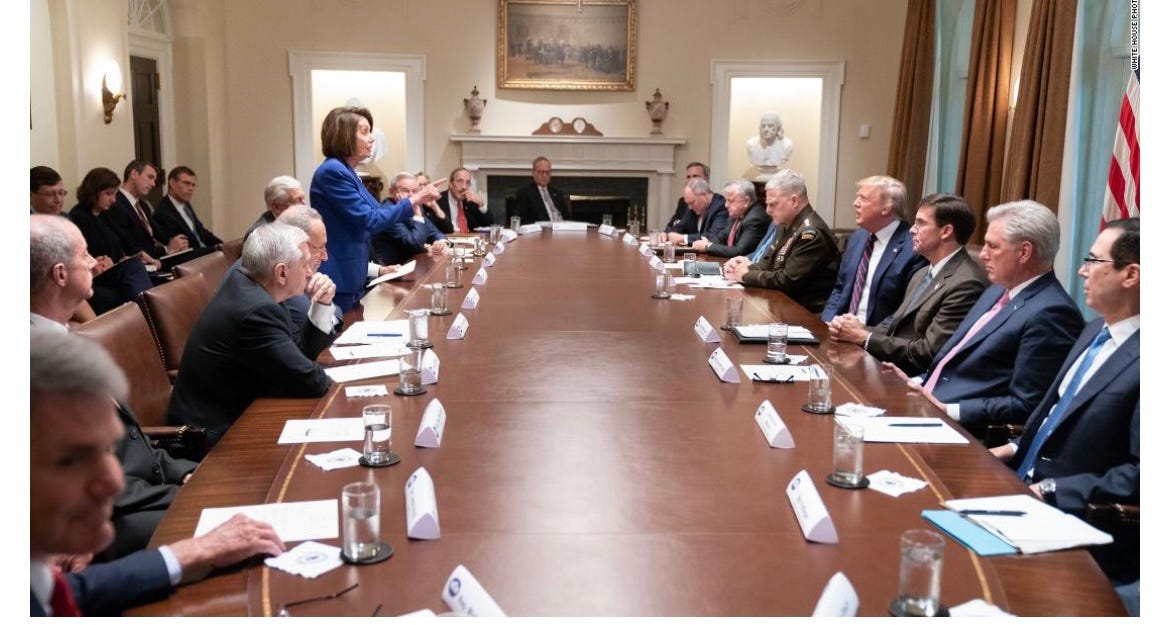I wasn’t originally going to do a write up on this.
But given the week we’ve endured, I think it’s needed.
A friend recently recommended this book to me….
…so I bought it and read it.
It’s a fascinating read—a truly unique take on the last 10 years of politics. What’s the book’s thrust?
It’s that Trump didn’t win the 2016 GOP primary, or later the presidency, and again the recent GOP primary, for all the reasons that are usually given for his rise, which are:
Economic and life struggles of his base
Backlash on cultural issues
That the Democratic Party abandoned the working class
And so on
Fish cites a wide range of data to disprove each of these standard explanations.
So, if those don’t explain Trump’s rise, what does?
Fish’s answer: “the politics of dominance.”
Something he calls “high-dominance politics.”
What is that? To summarize a lot of material, high-dominance leaders:
Seek to shape reality as opposed to “reality-taking” (they work to shift public opinion as opposed to only reacting to polls)
Are “conflict-embracing,” choosing “preemption over reaction,” and “seek to win outright and big, not just avoid loss.”
Use powerful, strong language—“everything she says and does conveys confidence, optimism, and exuberance.”
Why do these traits work so well for those who exhibit them?
Because “people gravitate toward high-dominance leaders.” And they avoid those who exude opposite qualities: “if a leader can’t get the best of his opponents, how can he be relied on to protect his followers—or that nation as a whole?”
By the way, this has always been my take on Trump’s rise in the 2016 GOP primary—against a group of far more experienced but largely feckless opponents. Those debates, where Trump stood center stage and called the others “Little Marco” and “Low Energy Jeb” and “Lyin’ Ted,” was a classic example of one person dominating a stage, personally owning his opponents, and knocking them off one at a time by doing so. It was all personal, no policy. And it’s almost all we remember from those debates.
To paraphrase Fish, if Rubio or Cruz or Bush couldn’t come across as leaders vis-a-vis Trump in those settings, “how can [they] be relied on to protect…the nation as a whole?”
But that’s just the Trump example.
Examples of other “high dominance” presidents in recent American history include Theodore Roosevelt, John Kennedy, Ronald Reagan, Bill Clinton, George W. Bush, Dwight Eisenhower and Lyndon Johnson.
Despite some exceptions, Fish provides his assessment of the general Democratic approach to politics, and suggests that for the most part, Democrats do the opposite of the above:
“while the Republicans try to make opinion, the Democrats take it…the Democrats often refrain from defending even popular policies lest the polls turn against them. The Republicans act as if their policies have more support than they do; the Democrats act as if theirs have less.”
On conflict: “the Democrats dislike conflict and find us-vs-them politics distasteful. The Republicans play offense; the Democrats play defense. When the Republicans say something controversial, they push forward; when Democrats cause a stir, they walk it back.”
Language: “The Republicans use entertaining, aggressive, provocative language; the Democrats bore with bromides. The Republicans cast themselves as imposing, indomitable, menacing and triumphant; the Democrats present themselves as imposed upon, vulnerable, menaced, and in danger of defeat.”
There’s far too much to cover here, but he expands a lot on these points.
Then he reaches this conclusion: “whether democracy survives hinges in part on overcoming the Republicans’ dominance advantage….Persistently and aggressively defeating their dominance is the name of the game. Until liberals internalize this truth, authoritarians will control the political playground.”
More Examples…
By the way, you don’t have to act as absurdly as Trump to be a high dominant figure. Fish gives examples of the different modes that past figures soared through high-dominance leadership: “Some own their opponents with sharp humor (Lincoln), badass bulldozing (LBJ), intellectual brilliance and master of policy (Clinton), ineffable cool (Obama), or all of the above (FDR and JFK) “
Fish argues that our most celebrated civil rights heroes were high-dominance leaders. They reshaped reality, and didn’t accept it. They were “brazenly conflict-embracing.” “They spoke the language of winning and redemption. One searches in vain for doubt, complaint defeatism or defensiveness….”
“King’s language was always the language of victor holding the moral high ground.”
And who does Fish describe as “arguably the highest dominance major Democratic Party leader of the 21st century”?
Nancy Pelosi.
When others were close to walking away from the Affordable Care Act, she reshaped reality and pushed it through.
“She was one of the few Democrats who sometimes owned Trump,” including in this iconic photo, where she stood up to him, pointed at him, and as she said later, said “all roads lead to Putin.” “The photo went viral” as a symbol of strength.
She later told reporters that she “prayed for the president.” She ripped up his State of the Union speech in front of the entire nation, and only feet in front of him.
It’s been clear since that Trump is intimidated by Pelosi, even incoherently rambling about her the other night.
Reclaim the National Narrative
Fish also argues that part of a high-dominance strategy, the “ultimate high-dominance move,” is “[c]laiming the nation—defining who’s part of it, what its values are, and what it seeks to be.”
That is clearly what authoritarians do, seeking to wrap the demagogue in that national narrative, and often pushing “exclusionary, nativist” stories.
What those who care about democracy must do is wield a “national narrative for protecting democracy.” And that must be a story anchored in a proud, patriotic narrative of “national glory and promise.”
Obama made such a case when he’d say: “In no other country on is my story even possible.”
It’s within that frame that high-dominance Democrats have successfully framed and pushed policies in the past.
FDR grounded his economic policies as “the American thing to do” — In one speech Fish citied, here’s what FDR said: “Once more this year we must choose between democracy in taxation and special privilege in taxation. Are you willing to turn the control of the Nation’s taxes back to special privilege? I know the American answer to that question.”
Fish concludes by laying out a “national-democratic narrative” he recommends Democrats assert. “America’s glorious story is all over the place. Democrats can and should be looking for examples of it and telling them all the time.”
He cites the closing words of this speech by JFK:
“For this country is moving and it must not stop. It cannot stop. For this is a time of courage and a time of challenge…So let us not be petty when our cause is so great. Let us not quarrel amongst ourselves when our Nation’s future is at stake. Let us stand together with renewed confidence in our cause—united in our heritage of the past and our hopes for the future—and determined that this land we love shall lead all mankind into new frontiers of peace and abundance.”
Never heard these words? Most haven’t.
This was the speech Kennedy intended to give in Austin, Texas, the day he was assassinated.
A New Attitude
It’s a provocative book. You may not agree with every word. I don’t.
Whether you’re an activist looking for some inspiration or a candidate looking for some messaging guidance, you may find it useful.
But I also think it captures a broader mindset and attitude we all must adopt as we confront a group of people who are hell bent on tearing our country apart, attacking freedom itself, subverting democracy, elevating a privileged few over the majority’s will, embracing authoritarians from other nations while insulting patriots of our own, and shredding most of the principles that have formed our nation’s bedrock.
Together, the combination is as un-American as it gets, and we should boldly call it out in those terms.







Biden gave an extraordinary speech at D-Day Remembrance in France.
He is first president to join a picket line, the first to go into active conflict zones (in Ukraine and Israel). He has pushed Russia back and defeated COVID.
His opponent drives golf carts.
I'm riding with Biden.
The undelivered JFK quote!